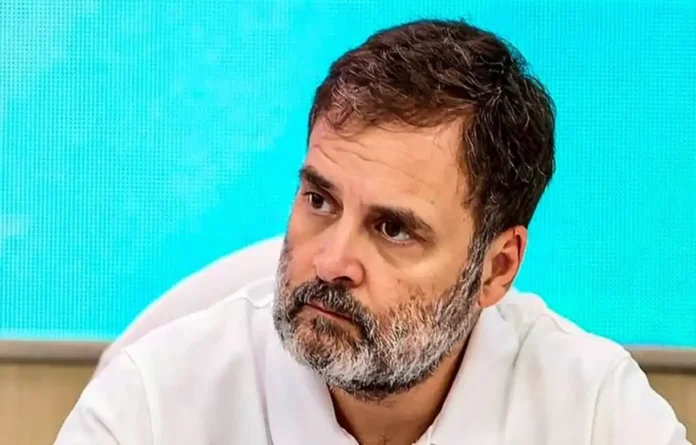A special MP/MLA court in Pune has granted ‘permanent exemption’ from appearance to Congress leader Rahul Gandhi in a criminal defamation case filed against him for making derogatory remarks against freedom fighter Vinayak Damodar Savarkar.
The order was passed by Judge Amol Shinde. This means the Congress MP need not attend the court proceedings during the trial. However, he would have to be physically present in the court, when the verdict in the case is pronounced.
Satyaki Savarkar, grand-nephew of the freedom fighter, had filed a criminal defamation case against Gandhi over his remarks against Savarkar.
The Congress leader filed a fresh petition in the Pune court seeking conversion of the ‘summary trial’ pending against him in the defamation suit into a ‘summons trial’ as his statements were based on historical facts.
Filed through Advocate Milind Pawar, Gandhi’s plea submitted that Satyaki Savarkar, the complainant in the instant case, claimed that Vir Savarkar contributed to the struggle for freedom from the British rulers.
Disputing the claim, Gandhi urged the court to convert the trial into a summons trial since it called for records of historical facts.
He said the main issue in the case was to determine certain historical facts on which the parties were at variance. A major part of the evidence would comprise material of historical nature, entailing an academic enquiry.
Since the present case raised complex questions of fact and law, it required searching and a detailed cross-examination, which may not be permissible if the case was tried summarily. The trial was likely to take a long time. It would be incumbent in the interest of justice that it was tried as a summons case, noted the plea.
It said the true account of the role of late Savarkar in the historical movements as well as historical facts surrounding this core movement (of freedom struggle) should be brought before this court.
Savarkar’s contribution in gaining freedom and many other important historical events coming before the court were very important in terms of getting natural justice for Gandhi, it added.
Special Judge Amol Shinde, while taking the application on record, sought response from the complainant.
Earlier on January 10, the special court had granted bail to the Rai Bareli MP in the criminal defamation case on a surety bond of Rs 25,000.
Satyaki Savarkar, grand-nephew of the freedom fighter, had filed a criminal defamation case against Gandhi under Section 500 (defamation) of the Indian Penal Code (IPC).
The complaint contended that Gandhi had repeatedly defamed Savarkar on various occasions over the years.
It mentioned a specific incident of March 5, 2023, wherein Gandhi had addressed the Overseas Congress in the United Kingdom. During the speech, Gandhi allegedly referred to Savarkar’s memoirs about an incident, wherein he and others had assaulted a Muslim man. As per the Congress leader, the freedom fighter reportedly called the situation “pleasurable.”
The complaint further mentioned several news reports and a YouTube link to a video of Gandhi’s speech in London as evidence.
As per Satyaki, Savarkar never wrote any such book and such an incident never happened. Gandhi made these false, malicious and wild allegations with the specific objective of defaming the legendary freedom fighter and harming his reputation.
The petitioner alleged that Gandhi intentionally made wild allegations against Vir Savarkar, knowing them to be untrue, with the intention of harming his reputation and causing mental agony to the complainant and his family.
Though the defamatory speech was delivered by Gandhi in London, its impact was felt in Pune as it was published and circulated throughout India, said the complainant.
Satyaki sought maximum penalty for Gandhi under Section 500 of the Indian Penal Code (IPC) for criminal defamation, along with the highest compensation under Section 357 of the Criminal Procedure Code (CrPC).


